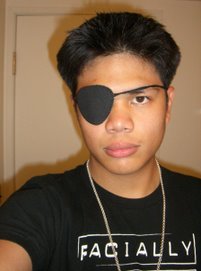 The first time I dropped out of university was probably one of the better decisions I’ve made in my life.
The first time I dropped out of university was probably one of the better decisions I’ve made in my life.The travel advisory currently issued on the
Ignoring post-9/11 norms of paranoia, I went there independently to study for their first semester to see what life in a local university—the most prestigious public university with many Filipino intellectuals as its alma matter, including former president Fidel Ramos—would be like through the eyes of a self-proclaimed citizen of the world who could survive in any environment, thus influencing my (perhaps misguided) attempt to live and study like the typical Filipino student.
An entire semester of tuition for a local (lucky for me, I am a dual citizen and have an apartment there) was approximately $70
Churchill could not have been more prophetic about my experiences in the language divide in
On the first day, in spite of looking the same and dressing down to fit in with the other students in a country where the average family’s income converts to just a little over $3,100 U.S., I stood out like a marshmallow floating in a cup of hot chocolate, and I’m not white.
There was something about me that caused everyone to pay attention to me, even while hiding my
My cover being blown already, I was thankful that my professors let me know that I would not receive any special privilege for being an American. Instead I get stigmatized.
Looking for the non-existent textbook store, I was instead pointed in the direction of the long hallway of Xerox copying stalls, having to go to several in order to obtain copies of entire books as my assigned readings. A handful of texts fresh off the copier, I can only describe the long march between buildings as equivalent to crossing deserts, even when riding overcrowded jeeps and squishing between hot, sweaty people.
My second day of classes, a syllabus was then distributed, followed by the assignment of groups and topics. Group work already? Okay, I can deal. I was part of a group they jokingly nicknamed “United Nations” due to my partner being half-Armenian, but already a third-generation Filipino. We did our research and picked a presentation date, and I did the same for my other two classes, which followed a suspiciously similar pattern of topics and assigning of groups.
It turned out to be a very popular university professor’s technique in the
In a history class, students were told to read chapters, with each group presenting a few chapters and themes, getting awarded higher grades for giving snacks and theatrical presentations. In a chemistry class, when a professor spent half an hour wondering why her equation was wrong got embarrassed when my friend, a visiting white guy from Massachusetts, said that she had it wrong because it was upside down, and left the class saying that since we understood the subject material so well, she wouldn’t have to explain it anymore. This is when he got screwed over for homework and became the enemy of the students.
By the end of my third week, I jumped ship and had an extensive talk with my long-time mentor from Boston living in Manila in a self-imposed exile, who had spent time as both a professor and student in that university, saying that his time there in the 1970s was exactly the same, and praised me for being wiser than him in my choice of dropping out instead of dragging out a semester, like he did for two years.
The basic formula ended up like this: teachers don’t earn enough money, so why waste effort on teaching? Let the students pay them to be just as unhappy. The students, however, are to be praised for being ruthless and enduring four or more long years of this in attempts to improve their family’s place in society. A sad fact of life there is that moving up in society is either marrying an American or moving the

No comments:
Post a Comment